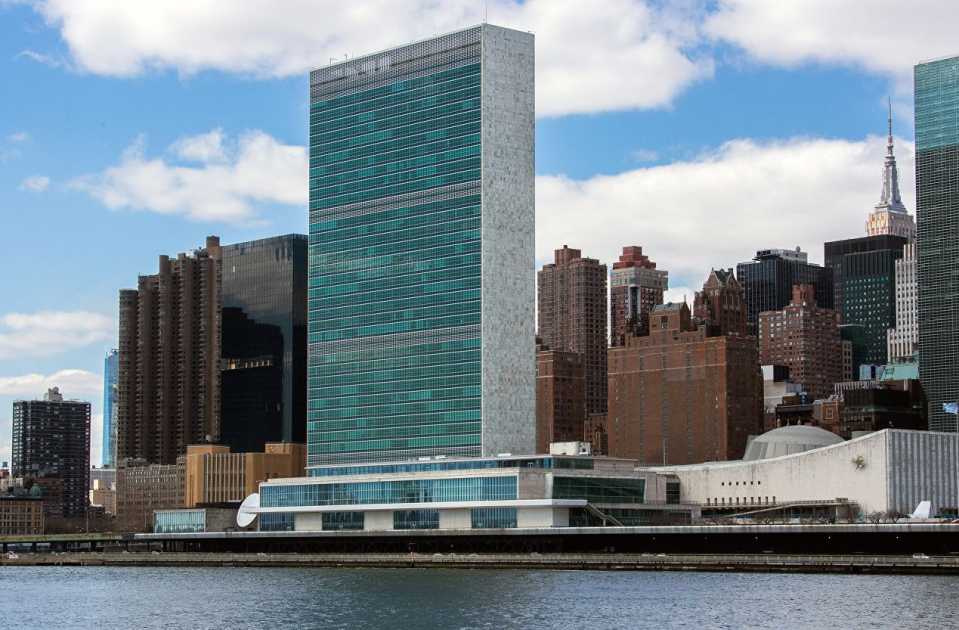Statement by Dmitry Polyanskiy, First Deputy Permanent Representative of Russia to the UN, at the open VTC of UNSC members on the Central African sub-region
Mr. President,
We thank the Special Representative of the Secretary General, Mr. François Louncény Fall, for the presented assessment of the situation in the Central African region. The Russian Federation consistently supports activity of the United Nations Regional Office for Central Africa (UNOCA) as an important tool of the preventive diplomacy. We believe that the “good offices” of SRSG Fall are in high demand in the sub-region.
Also I would like to express condolences to our Burundian friend with regard to the death of President P. Nkurunziza. We are all deeply saddened by this loss.
Central African countries face complex challenges. In recent months, the coronavirus pandemic has added to the list. In this regard, we note with satisfaction the information contained in the latest Secretary-General’s report that timely measures have been taken to stop the spread of COVID-19. It is clear that much remains to be done, but we see movement in the right direction.
We also consider it extremely important that the regionals play a key role when it comes to crisis prevention and conflict resolution. We welcome commitment by the Economic Community of Central African States (ECCAS) to finalize the institutional reform, which aims to strengthen the organization’s potential.
Mr. President,
Central Africa is an important region in terms of countering the spread of terrorism on the continent. Pervasion of radical and terrorist elements into the sub-region is accompanied by trafficking in arms, drugs and natural resources.
We are concerned that Boko Haram retains a serious destructive potential. The terrorist group is particularly active in Chad and Cameroon. Extremists attack civilians and soldiers, UN personnel. A major concern is the influx of foreign terrorist fighters, including those from the Islamic State, in Boko Haram.
We attach particular importance to regional efforts aimed at developing coordinated approaches to the fight against terrorism. We consider it important to ensure adequate funding for the activities of the Multinational Joint Task Force.
For our part, we intend to continue working in various formats in the interest of eradicating terrorist threat on the African continent.
Mr. President,
We are closely following the developments in the Central African Republic. We support the efforts by the country’s leadership, primarily President Touadera, aimed at stabilizing the situation, which is of particular importance in the context of the upcoming elections. The political agreement on peace and reconciliation in the CAR of 6 February 2019 has already played a positive role and remains the basis for further steps to resolve the situation in the country. Russia will continue to closely support the process of national reconciliation, coordinating efforts with those who are involved in searching for ways to normalize the situation.
Piracy in the Gulf of Guinea is among other factors of instability in the sub-region. Unfortunately, attacks on foreign marine vessels continue, including those with hostage-taking. Our country has a positive experience of participation in international efforts to counter this threat, including through the Contact Group on Combating Piracy off the coast of Somalia. We hope it will be in demand to solve similar problems in the Gulf of Guinea.
We are concerned about the ongoing activities of the “Lord’s Resistance Army” (LRA) that still undertakes looting and robberies in certain areas of the CAR, DRC and South Sudan. The fight against the group should remain on the agenda of the Central African states. We hope the AU Regional Cooperation Initiative for the Elimination of LRA will bear fruit.
Mr. President,
We are closely following the developments in Cameroon. The issue of Anglophone provinces did not arise yesterday. It has deep historical roots. A solution to the accumulated problems can be found only at the negotiating table, while observing human rights and ensuring the rule of law. We urge all Cameroonian parties to exercise maximum restraint and to abandon any use of violence.
We welcome the beginning of the implementation by the Government of the recommendations of the national dialogue. We hope that soon the agreed initiatives will be implemented in full.
In conclusion, we would like to remind that challenges and threats that Central Africa encounters are closely interconnected, while the states of the sub-region are interdependent. Destabilization of situation in one country may bring down the security of neighboring states. Therefore, it is extremely important not to cross the line between prevention and interference in internal affairs.
I thank you.
